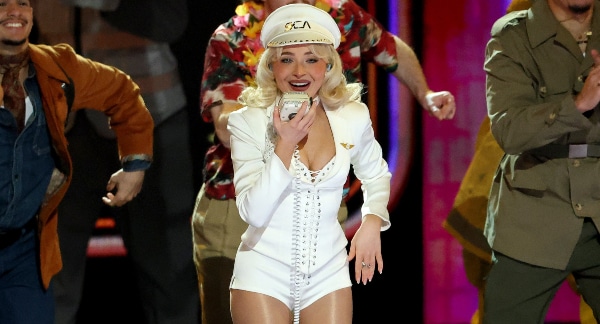Surviving College: Howard Students Hustle To Stay Enrolled After Federal Aid Cap
✕ When I began looking into how students at Howard were managing their tuition this fall, the first semester after Donald Trump’s Big Beautiful Bill capped federal student aid, I didn’t expect my reporting to lead me to GoFundMe. But late one night, I typed “Howard University tuition” into the site’s search bar — and [...]

When I began looking into how students at Howard were managing their tuition this fall, the first semester after Donald Trump’s Big Beautiful Bill capped federal student aid, I didn’t expect my reporting to lead me to GoFundMe.
But late one night, I typed “Howard University tuition” into the site’s search bar — and kept scrolling. And there it was: hundreds of my classmates, crowdfunding their education one donation at a time. Page after page, I saw faces of my classmates filling the screen. I saw smiling seniors in graduation caps. I saw first-years in their dorms, musicians on stage, science majors in lab coats, a future surgeon, and an ice skater all asking for the same thing: help me stay in school and finish my degree.
Each campaign told a story I already knew too well: students one tuition bill away from losing their housing, one financial hold away from being locked out of registration. Some were asking for $500, others $10,000. Together, they added up to a sad and desperate portrait of students trying to survive higher education in real time.
In my research, using GoFundMe’s public search engine and keyword filters, I found roughly 300 active campaigns started by Howard students this year. What used to be a last resort has quietly become a lifeline and a new kind of financial aid system powered not by government loans, but by strangers’ kindness and classmates’ solidarity.
This fits a national pattern. According to Newsweek, there was more than a 15% rise in education-related crowdfunding campaigns on GoFundMe in 2024. A NASFAA report from 2023 said students are increasingly turning to crowdfunding to help cover their education expenses.
The timing isn’t a coincidence. The One Big Beautiful Bill Act, passed earlier this year, capped how much students and parents can borrow in federal aid. The policy was meant to prevent excessive debt. But for many students, it’s done the opposite by trapping them mid-degree and causing them to scramble for cash just to stay enrolled.
The policy’s fallout isn’t just theoretical; it’s personal. Stephanie Stewart, a journalism major at Howard, said delays with her Parent PLUS loan nearly cost her both housing and enrollment. She first learned about the loan when an unpaid balance stopped her from registering for classes. Later, when the housing crisis hit, she and her father applied for the loan to cover rent. Even after being told the loan was disbursed in late August, the money never arrived. For weeks, she visited the financial aid office almost every other day while facing pressure from her housing company. “I kept explaining it was out of my control,” she said, “but there’s only so much time they’ll give me.”
When I reached out to students organizing these campaigns, I recognized their exhaustion and their hope. Jessica Parker, a junior from Georgia, said her university refused to release her student loans until an old balance was paid. “It’s stopped me from even beginning my junior year,” she said. On her GoFundMe page, she writes about wanting to become a healthcare professional dedicated to helping lower-income families. She’s raised $3,585 so far, and she is a little over halfway to her goal.
Anania Wills, a sociology major, wrote that her family had managed to make ends meet every semester until now. “If we don’t receive payment by July 31st, the university will send our account to collections,” she said. She’s raised $2,000, a fraction of her $15,000 goal.
Students at other universities are hustling to survive in similar ways. At Temple University, Legal Studies major Kennedy Seabrook said the cost of staying enrolled depends on your major and housing situation. While she hasn’t seen as many GoFundMe campaigns, she’s watched classmates sell clothes, do hair and nails, and work multiple campus jobs just to make ends meet. “Temple is really expensive,” she said. “I know people drop out to save money.”
At Towson University, nursing student Jasmine Downer said financial pressure varies depending on family support. Some students rely on parents’ savings or college funds, while others manage completely on their own. She’s seen peers juggling meal plans and off-campus housing to cut costs, though crowdfunding is still rare on her campus.
Scrolling through these pages, it’s impossible not to feel the weight of what’s happening. Behind every smiling profile picture is a student doing everything right. They’re studying, working, and volunteering, and still coming up short.
At Howard, this isn’t just about money. It’s about access, opportunity, and the erosion of what college was supposed to promise.
Each story I found seemed to echo the last. Roy Xavier James Vanterpool, a junior electrical-engineering major, wrote that even after working 40 hours a week over the summer, he still couldn’t cover the sudden spike in tuition and housing costs. He’s trying to raise $5,000 to stay enrolled. “Every dollar will help me stay on track to earn my degree,” his page reads. He’s not just fighting for himself; he’s a member of Alpha Phi Omega and the Howard NAACP, where he advocates for juvenile justice reform.
Finance major Tayvion Elzey lost his Resident Assistant position, a job that once paid for housing, and with it, the stability that allowed him to stay in school. His GoFundMe tells donors that “every contribution will help me continue my education and work toward my goal of making a positive impact in the world of finance and in my community.” His story captures the same paradox so many of us feel: doing everything “right,” yet still one policy change away from losing the future we’ve worked for.
Not every story ends in despair. Zakaiya, an acting student in the Chadwick A. Boseman College of Fine Arts, faced being sent to collections before her campaign went viral. Donations and messages of encouragement poured in from alumni, family, and strangers. “God is so good and we have more than we need as of right now,” she wrote after meeting her goal. Her joy felt communal and like a small victory for every student still waiting for theirs.
But for most students at Howard and beyond, the struggle continues. Crowdfunding has turned into an emotional full-time job with students posting updates between classes, refreshing donation pages, and learning to market their pain for survival. It’s public vulnerability that shouldn’t have to exist in a system built to uplift us.
The One Big Beautiful Bill Act was sold as fiscal responsibility. But for many of us, it feels like punishment for daring to pursue higher education without generational wealth. It’s forced students, especially at HBCUs, to rely on digital charity instead of guaranteed aid. A policy meant to cut government spending has simply transferred the cost of education to students’ mental health, dignity, and future earnings.
The irony is impossible to ignore: while federal aid is being capped, tuition continues to rise, housing companies continue to profit, and students are left to beg online to stay in school. What was once an exception, the occasional GoFundMe link on a class group chat, has become routine. Now it’s a mirror of what college has become: a system that demands both academic excellence and financial desperation.
When I look at the faces on those GoFundMe pages, I don’t just see strangers—I see classmates, peers, and friends. I see what it takes for Black students to chase success in an economy and a government that keeps moving the goalposts.
And as I keep scrolling, I realize this story isn’t only about Howard. It’s about what higher education looks like in America after The Big Beautiful Bill: students surviving college, not because of policy, but in spite of it.
Mekhi Neal is a junior Journalism major at Howard University with a passion for storytelling and broadcast media. He focuses on highlighting the experiences and resilience of students, especially within HBCU communities. You can follow him on Instagram.
SEE ALSO:
HBCU Students Caught Between Aid Cuts, Government Shutdown
Share
What's Your Reaction?
 Like
0
Like
0
 Dislike
0
Dislike
0
 Love
0
Love
0
 Funny
0
Funny
0
 Angry
0
Angry
0
 Sad
0
Sad
0
 Wow
0
Wow
0












